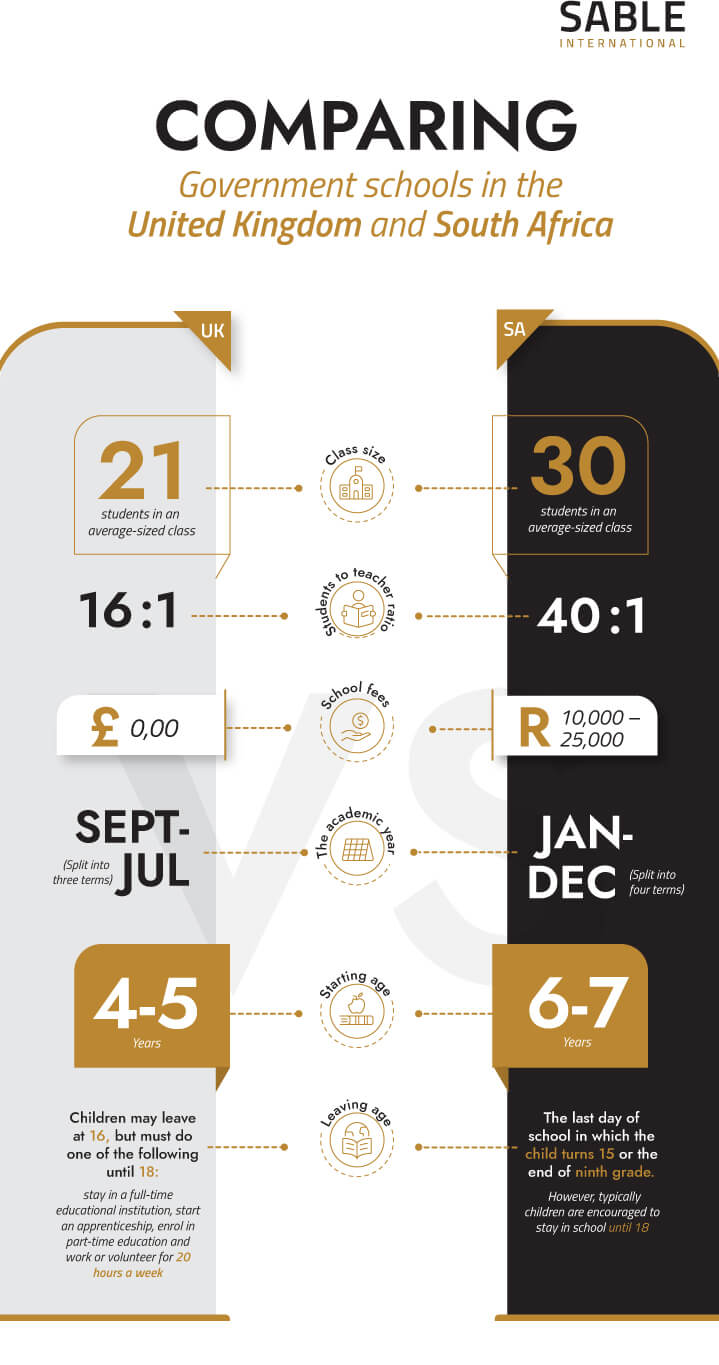

1. Age and year groups
In the UK, Children go into reception (kindergarten) at age four and begin their first official year of school at age five. In South Africa, your young ones will have probably begun school at age six.
2. The school system
Schools in the UK are classified as state-funded and fee-paying. Government-funded schools are free of charge and are typically referred to as primary and secondary schools. Grammar schools are also government-funded secondary schools with specific admission criteria – requiring all applicants to take a common entrance examination. Fee-paying private schools are generally called preparatory or senior schools.
Currently, the state-funded system is divided into three phases:
- Primary: Children aged five to 11
- Secondary: Children aged 11 to 16
- Further: Children aged 16+ taking A-Levels, GNVQs, BTECs and other qualifications
All children in the UK are to attend school in the primary and secondary phases, while further education is purely optional.
3. The academic year
The school year looks very different between the UK and South Africa. While South African schools follow the calendar (i.e. begin in January and end in December), in the UK they start in September and end in July. Schools in the UK are also split into three terms, compared to the four terms standard in South Africa.
4. Examinations and qualifications
In England, there are two school qualifications that students receive during senior school, GCSEs (or International GCSEs) and A-Levels. These are then used to apply for college or university.
In years 10 and 11, students take their GCSE or International GCSE courses. If they choose to progress on to further education, they will begin their AS or A-Level Courses in Year 12. The AS Courses, which are studied in Year 12, can be taken as standalone qualifications, or as part of the two-year A-level course. However, to receive full A-Level qualifications, students will need to complete both Year 12 (AS) and Year 13 (second year of overall A-Levels).
In South Africa, a National Senior Certificate (NSC) is afforded to all students who complete grade 12. This is often spoken of as an equivalent to an A-Level certificate, and is required for entry into university. However, it should be noted that A-Levels are a bit more advanced than the National Senior Certificate in South Africa. Students who want to study in the UK should make sure their NSC will be accepted at the school they are applying for. Some South African schools also offer advanced certificates such as IGCSE, AS and A-Levels.
Your way into the UK
As an international team, we know what it’s like to move to a new country – we’ve done it ourselves, several times over. Our unrivalled experience has helped us create relocation packages catered towards families with children of school-going age and are planning to migrate to the UK. We’re here to make every aspect of your move more convenient.
